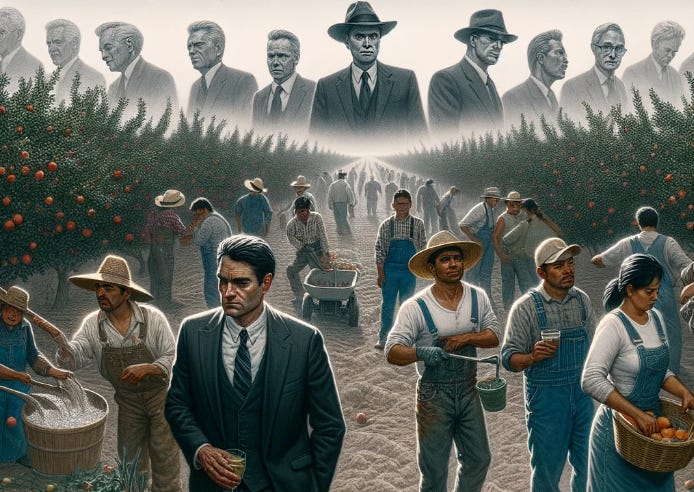Gentry, Culture, & the "Left Behind" Places
Noodling around what I fear are the most important issues in regional development policy today, at least in America...
Noodling around what I fear are the most important issues in regional development policy today, at least in America...
What society should do for left-behind people—indeed, what society should do for people—is very clear to me: teach them things.
Education is the Royal Road to pretty much everything in modern societies, and will only become more so as we move from the global value-chain into the attention info-biotech mode of production.
Subsidize education! And if you are worried—which you should be—about how with education subsidies more shall be given to those who already hath, subsidize it via income-contingent grants. And if you are worried—which you shouldn’t be—about limited governmental resources—do the same.
But what about people—if there really are any—who are too old to learn? And what about people—and there are very many—who think they are too old to learn? And what about people—and there are very many, and they geographically clump—who do not want to learn to do something new, especially not in a different place, and are very angry because the government owes them the opportunity to make a prosperous living in the place they grew up doing what they, or their parents, have always done?
For those people I find myself more-or-less completely flummoxed.
The extremely sharp Diane Coyle, however, thinks she has an answer:
Diane Coyle: ‘To Fight Populism, Invest in Left-Behind Communities: ‘Western countries must revitalize small towns and rural communities and ensure universal access to essential public services…. There is an economic case to be made for investing in public services and the infrastructure that sustains them. By recognizing that a shared sense of optimism and a basic faith in the possibility of social mobility fuel economic growth, we can repair the economic damage of the past two decades. A country that overlooks “places that don’t matter” risks becoming irrelevant itself… <https://www.project-syndicate.org/commentary/improved-public-services-can-reduce-geographic-disparities-by-diane-coyle-2023-12>
And this is so even though such investments in revitalization are rowing against the tide of progressing technology:
Diane Coyle: To Fight Populism, Invest in Left-Behind Communities: ‘Structural economic shifts… have made urban living more lucrative. In today’s knowledge-based economy, where value is increasingly derived from intangible sources, gathering people in densely populated urban areas often results in positive spillovers… <https://www.project-syndicate.org/commentary/improved-public-services-can-reduce-geographic-disparities-by-diane-coyle-2023-12>
Does she?
Keep reading with a 7-day free trial
Subscribe to Brad DeLong's Grasping Reality to keep reading this post and get 7 days of free access to the full post archives.




